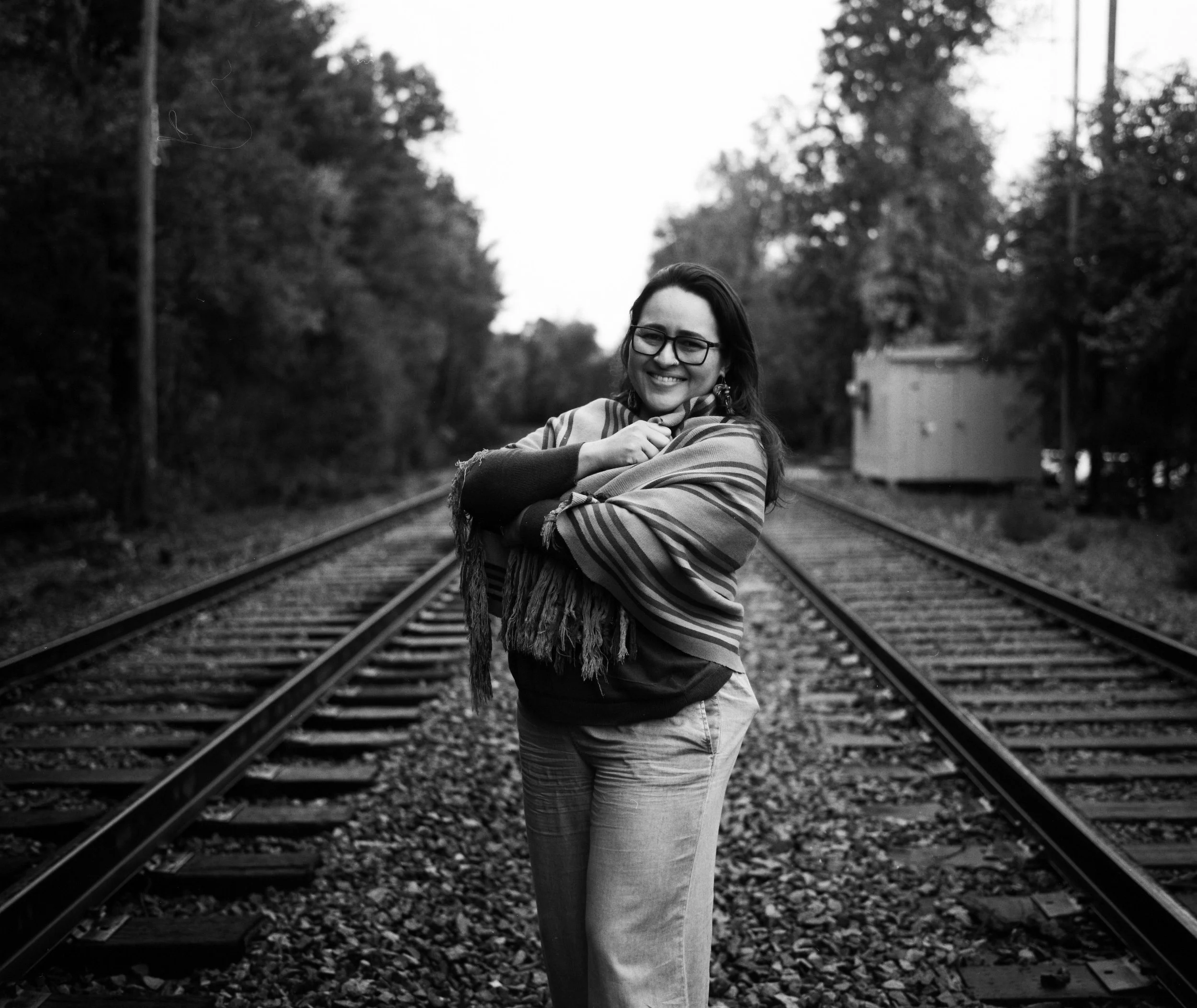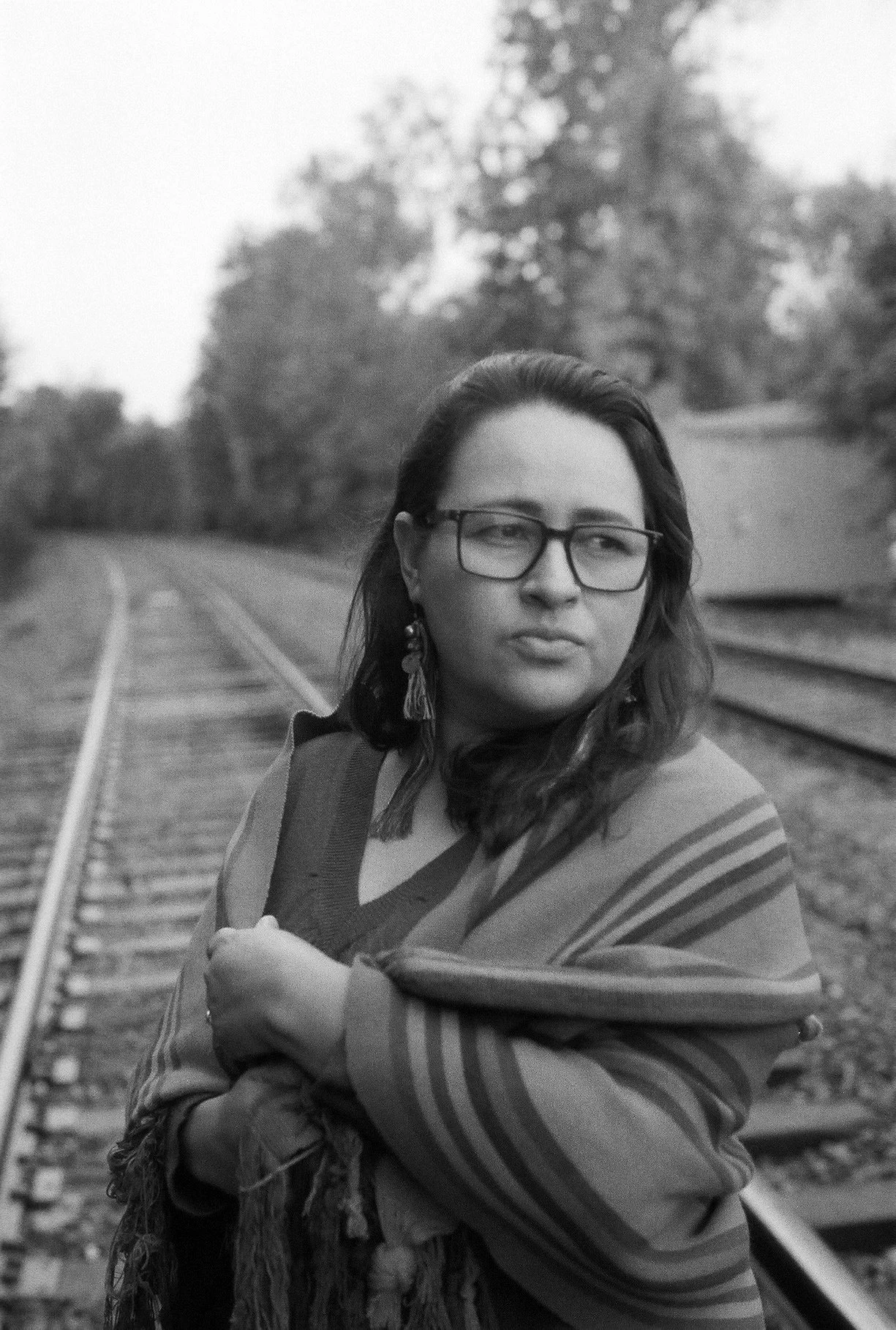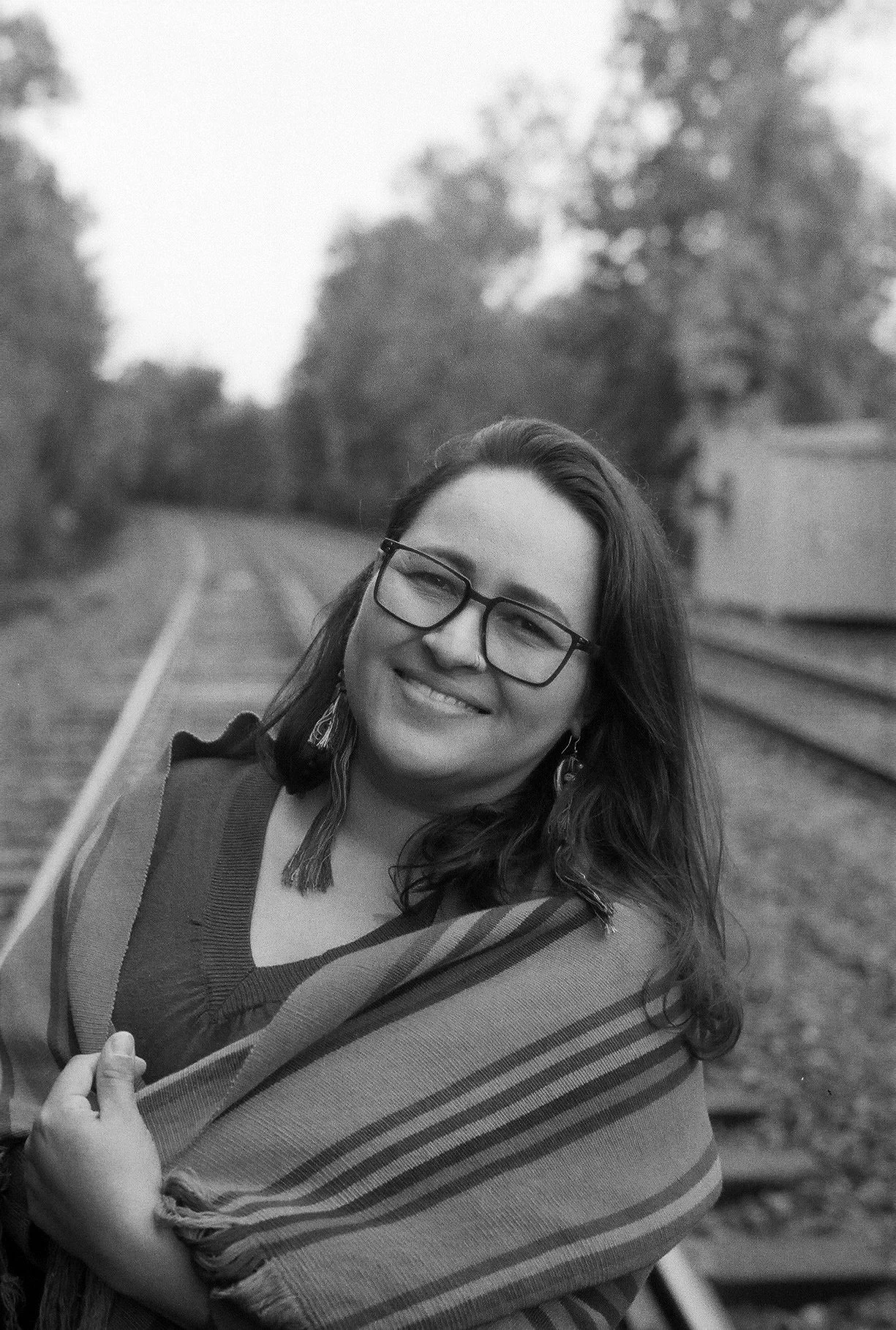Renacer | Stef Arreaga
Country of Beauty and Pain
Guatemala is a small Central American country just below southern Mexico. Our history is marked by pain, tears, and blood—from colonization to the present day. The 36 years of internal war left deep scars and wounds that still remain open.
Collective joy is rare in Guatemala, but when our national soccer team tied with Brazil in 1998, a spontaneous national celebration erupted. Our three Olympic medals have brought us overwhelming pride. We take joy in local fairs and their humble rides, where eating a “crazy corn,” garnachas, or a bag of churros feels like a feast.
During Holy Week, some visit the black sand beaches of the Pacific, rivers, and villages, while others walk with the traditional processions that paint the streets with vivid sawdust carpets. Our markets offer daily spectacles of color and flavor.
And even though we often rank among the top in corruption and poverty in the region and face serious social and economic challenges, the people remain some of the warmest, most hospitable, and kind-hearted you’ll ever meet.
Being surrounded by Guatemalans feels like a warm hug for the soul. In the midst of hardship, we usually find the bright side of life and choose to smile—often even making jokes and memes about our own misfortunes, perhaps as a form of unconscious self-care. We love to cook and share a humble “muñeco” of tortillas with a plate of beans and cream and a cup of coffee with sweet bread. We dance to the rhythm of the marimba or whatever music is playing, dragging fresh pine branches across the floor as part of our traditions. Guatemalans drink until the pain is forgotten, and the next day there’s always someone offering a hot “caldo de huevos” or a warm “atol blanco” to cure the hangover. As our Nobel Prize–winning writer Miguel Ángel Asturias wrote, “en Guatemala, solo se puede vivir bien a verga”—in Guatemala, you have to live fiercely just to live well.
A Guatemalan will make you feel like they’ve known you for years, will offer you their hand, and trust you with innocent sincerity. In Guatemala, there are more good people than bad, more generous souls than envious ones, more smiles than tears. And that’s how we’ve earned the name The Land of Eternal Spring—not just because of the warm climate and the country’s majestic natural and cultural richness, but because that spring lives within our hearts.
Journalism with a Purpose
Being a journalist in Guatemala is no small feat. Within our 42,000 square miles lie countless stories never told. Since I began my career in May 2014, my mission has been to give voice to the silenced.
I had the privilege of starting at an independent, non-corporate outlet—Prensa Comunitaria. It did not frown upon activism in journalism; instead, it was born to uplift the voices of the dispossessed, the marginalized, and the forgotten. There, I covered stories rooted in historical memory and human rights, especially those affecting women, children, Indigenous communities, and environmental defenders.
Being independent meant being targeted. Danger surrounded us, especially those reporting from rural communities. I covered heartbreaking stories of injustice, evictions, hunger, and murder. I never got used to it—but I came to understand that in Guatemala, fear becomes a part of daily life.
The Fire That Changed Everything
My life would change forever in March 2017, though I didn’t know it at the time. In a way, life had been preparing me emotionally and spiritually for one of the most painful events in Guatemala’s recent history.
On March 8, 1908, in New York’s Cotton textile factory, women protested for equal pay and better working conditions. The owner locked them inside and started a fire. No one opened the door. 129 women died.
On March 8, 2017, history repeated itself. In a state-run shelter for girls under 18, teens began protesting the day before—fleeing abuse, inhumane conditions, rotting food, punishments akin to torture, and an underreported human trafficking network.
The police recaptured over half of them. Fifty-six girls were pepper-sprayed and beaten with shields and batons by the National Civil Police. Authorities locked them inside a 22 x 26 ft classroom. A fire broke out in the early hours of March 8.
No one opened the door. Forty-one girls died of burns and carbon monoxide poisoning. Only fifteen survived—many with amputations and severe burns.
A Call to Act
I wasn’t working as a journalist that day—I was home with my baby. But that day still changed my life. My mother, a small group of friends, and I chose not to look away.
With no state response, we stepped in as civil society. We compiled the first official list of the deceased, helped families reach hospitals and the morgue, delivered the heartbreaking news to mothers, aided in body identification, and coordinated support for victims. That’s how the 8 Tijax Collective was born.
My journalism slowly fused with my activism. We represented over 20 victims in court. After six months, due to lack of resources, we handed the cases to the Bufete de Derechos Humanos, specialists in genocide and crimes against humanity.
Information Too Dangerous to Share
Being involved in the trial allowed me access to powerful, sensitive information. Publishing it could have cost me my life. That information remains locked in my mind. My involvement, which implicated then-President Jimmy Morales, eventually forced me into exile.
Life in Exile
After threats, security incidents, and the clear absence of protection, I fled Guatemala with my family. We packed a suitcase filled with memories and said goodbye. Nearly four years later, we are still adapting.
For the children, the transition was easier. They quickly learned the language and customs. They discovered a new culture—one less affectionate, less attached to family or community networks.
For me, the transition was harder. I went from conducting investigations to cleaning bathrooms in a dialysis clinic. From producing daily news stories to delivering Amazon packages. I believe all work is honorable, but the emotional shock was real.
Healing, Grief, and Acceptance
After mourning the 41 girls, I began mourning my own loss—of home, of belonging. I spent hundreds of hours in therapy to learn to stop grieving the present and start loving this new life.
I learned to let go of the home I built and lost in Guatemala. I learned that my life is here now. That the love and tenderness within my marriage embrace and protect our children wherever we go.
Today, I can see my present with clarity and gratitude—for the peace that now fills our mornings and nights. In Guatemala, we lived with constant fear, never knowing if tomorrow would come safely.
A pending debt
I still owe something to the 56 girls of the Hogar Seguro Virgen de la Asunción. I know the time will come to honor them—to turn dreams born in pain into something rooted in love.
For now, we keep walking, grateful for all we've learned and lived.
Stef Arreaga is a Guatemalan journalist currently exiled in the United States for her investigative reporting on a case involving the Guatemalan government. She works as a freelance journalist for various media outlets and serves on the board of directors of the Guatemala Human Rights Commission (GHRC). A member of the National Association of Hispanic Journalists (NAHJ) and a former fellow of the International Women’s Media Foundation (IWMF), she is also the founder of Ocho Tijax, a collective focused on human rights. Stef lives in Massachusetts with her family and continues to contribute to journalism through her independent work.
Written by Stef Arreaga | Photography by Chessin Gertler




